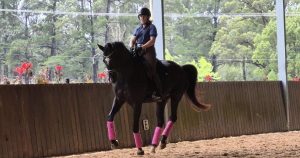Diabetes mellitus is a metabolic disease in which the body reaches a state of elevated fasting blood glucose due to not producing enough or responding normally to insulin.
In type 1 diabetes the body’s immune system attacks the cells in the pancreas that make insulin. While type 2 diabetes happens due to the body becoming resistant to insulin and is associated with genetics and lifestyle choices. Left unmanaged T2D can contribute to health complications such as neuropathy (peripheral and autonomic), nephropathy, diabetic retinopathy, and cardiovascular diseases.
The management of T2DM is a combination of regular physical activity, healthy eating and medication such as insulin injections. A team of healthcare professionals are available to provide guidance in order to help educate and establish a routine to achieve greater general health and wellbeing. This team may consist of a General practitioner (GP), Dietician, Diabetes Educator, Endocrinologist, Accredited Exercise Physiologist, Podiatrist, Pharmacist and/or Psychologist.
Regular physical activity and exercise can play a vital role in helping people manage diabetes mellitus (type 1 or type 2). Although exercise cannot reverse damage to the pancreas, it is ideal in improving the way muscles respond to insulin and helping the body regulate blood glucose levels for a period after exercise.
Other longer term benefits of regular exercise include:
• Improved insulin response
• Lowers blood glucose
• Lowers blood pressure and cholesterol
• Reduced risk of developing diabetes complications
• Improved body composition
• Improved aerobic capacity
• Improved mood, reduced stress
• Improved bone health
• Improved muscle health, strength and function
Recommended physical activity includes 150min/week of moderate to vigorous aerobic exercise spread out during the week, with no more than 2 consecutive days without activity. As well as 2-3 half-hour sessions of resistance (strength) training on non-consecutive days each week.
An Accredited Exercise Physiologist will be able to help educate, encourage and support you in achieving your physical goals and guide you in managing your diabetes. This includes monitoring your blood sugar before, during and after exercise as well as providing a specific exercise program for you.
Dynamic Motion Physiotherapy and Exercise Physiology, Galston
6/362 Galston Road, Galston 2159
e: [email protected]
w: dmphysio.com.au
ph: (02) 9653 3123
fx: (02) 9653 3821





